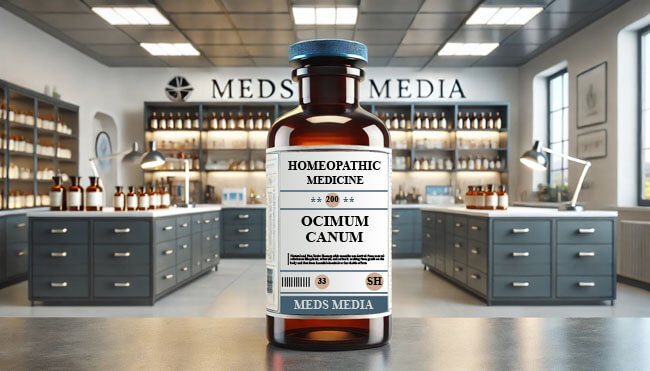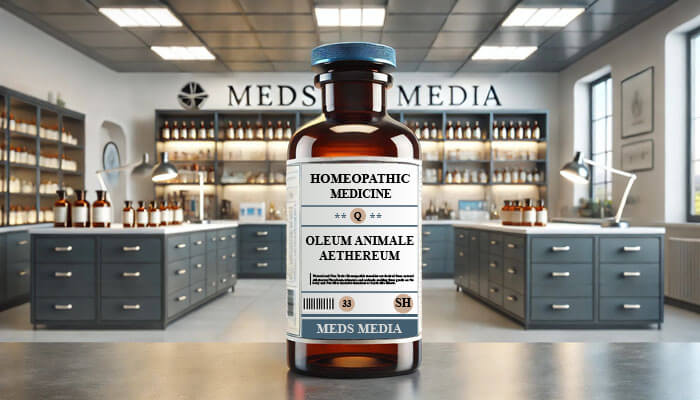SARSAPARILLA OFFICINALIS () Homeopathic Uses & Treatment Insights
Sarsaparilla Officinalis is a powerful homeopathic remedy known for its effectiveness in addressing a variety of conditions, particularly those related to urinary disorders, skin eruptions, and bone pain. It is commonly used to treat symptoms that arise during the spring and after exposure to damp weather, making it a versatile remedy in various chronic and acute conditions.
Below, we delve into the key symptoms treated by Sarsaparilla Officinalis and provide homeopathic insights into how this remedy offers relief and support for various ailments.
Symptoms & Materia Medica Insights
Renal Colic, Marasmus, and Periosteal Pains (Venereal Disease)
- Symptoms: Intense pain associated with renal colic and urinary stones; wasting away (marasmus); bone pain (periosteal) due to venereal infections such as syphilis.
- Materia Medica Insights: Sarsaparilla Officinalis is particularly effective in treating renal colic, with marked pain that radiates from the kidneys to the bladder. Its ability to relieve deep periosteal pain makes it beneficial for individuals suffering from venereal disease complications. The remedy helps improve overall vitality in cases of severe physical deterioration (marasmus).
Eruptions Following Hot Weather and Vaccinations; Boils and Eczema
- Symptoms: Skin eruptions worsened by hot weather or after vaccinations, boils, and eczema.
- Materia Medica Insights: This remedy is often prescribed for summer skin ailments, particularly those exacerbated by exposure to heat. Sarsaparilla Officinalis effectively reduces inflammation and itching in boils, eczema, and other chronic skin conditions.
Mind Symptoms
- Symptoms: Despondency, extreme sensitivity, irritability, and taciturn behavior.
- Materia Medica Insights: For individuals prone to mood swings, feelings of depression, and emotional sensitivity, Sarsaparilla Officinalis offers relief by balancing the emotional state and promoting mental clarity. It is an excellent choice for those easily offended or struggling with low moods.
Head Pain and Sensitivity
- Symptoms: Shooting pain from the right temple, pains from the occiput to the eyes, sensitivity of the scalp, and facial eruptions.
- Materia Medica Insights: Sarsaparilla Officinalis is beneficial for headaches associated with venereal disease or influenza, as well as scalp sensitivity. It also aids in treating conditions like crusta lactea (milk crust) and other scalp eruptions, offering soothing relief from discomfort.
Mouth and Throat Disorders
- Symptoms: White-coated tongue, aphthae (mouth ulcers), excessive salivation, metallic taste, and fetid breath.
- Materia Medica Insights: This remedy is excellent for addressing oral conditions such as canker sores, foul breath, and metallic taste. It promotes healing and reduces discomfort in cases of excessive salivation or ulceration.
Abdominal Issues
- Symptoms: Rumbling, fermentation in the abdomen, colic, backache, and flatulence.
- Materia Medica Insights: Sarsaparilla Officinalis works well for digestive disorders, especially when colic is accompanied by backache. It reduces bloating, gas, and abdominal discomfort, providing relief from painful digestion.
Urinary Disorders
- Symptoms: Scanty, slimy, flaky, sandy, or bloody urine; renal colic; severe pain at the end of urination; dribbling urine; bladder distension and tenderness.
- Materia Medica Insights: This is one of the most potent remedies for urinary conditions, particularly renal colic, bladder infections, and gravel (urinary stones). It is especially effective for children experiencing painful urination, where the child may scream before or during urination. Sarsaparilla relieves painful urination and reduces inflammation in the urinary tract.
Male Sexual Health
- Symptoms: Bloody seminal emissions, foul-smelling genitals, herpetic eruptions, and itching of the scrotum and perineum.
- Materia Medica Insights: For male patients, Sarsaparilla Officinalis is highly beneficial in cases of venereal disease, such as syphilis, which causes bone pain and skin eruptions. It also alleviates discomfort related to genital eruptions and itching.
Female Reproductive Health
- Symptoms: Retraction of small, withered nipples; premenstrual itching and eruption on the forehead; late and scanty menstruation.
- Materia Medica Insights: Sarsaparilla Officinalis is useful for women with menstrual irregularities, including delayed or scanty menstruation, as well as premenstrual skin eruptions. It also aids in soothing nipple discomfort, making it helpful for breastfeeding mothers.
Skin Conditions
- Symptoms: Emaciated and shriveled skin, herpetic eruptions, ulcers, dry and itchy rashes, cracked skin on hands and feet.
- Materia Medica Insights: For individuals with dry, cracked, and itchy skin, particularly in the spring, Sarsaparilla Officinalis provides significant relief. It is particularly effective for treating herpetic eruptions, ulcers, and deep cracks in the skin, especially around the fingers and toes.
Extremities
- Symptoms: Paralytic, tearing pains; trembling of hands and feet; burning sensations in fingers and toes; ulceration around nails.
- Materia Medica Insights: Sarsaparilla Officinalis is often used to treat rheumatic conditions, particularly when there is tearing pain, trembling in the limbs, or burning sensations under the nails. It also addresses bone pain and deep rhagades (cracks) around the hands and feet.
Modalities & Complementary Remedies
- Worse: Symptoms tend to worsen in damp conditions, at night, after urination, during the spring, or before menstruation.
- Complementary Remedies: Mercurius, Sepia.
Comparisons and Related Remedies
- Berberis vulgaris: For kidney and urinary issues, particularly stone formation.
- Lycopodium: For urinary and digestive complaints, especially related to flatulence and indigestion.
- Petroleum: For skin conditions with deep cracks and ulceration around the nails.
- Cucurbita citrullus (Watermelon): Acts on urinary complaints, especially painful urination with constriction and backache.
Dosage
- Recommended Potency: First to sixth potency is commonly used, depending on the severity of the condition and the patient’s sensitivity.
Select Your Homeopathic Medicine Dose and Potency
Potency Selection Guide
Relationship of Remedies
Similar Posts

NITRO MURIATICUM ACIDUM HOMEOPATHIC MATERIA MEDICA | Uses, Symptoms & Benefits Guide

NITRI SPIRITUS DULCIS HOMEOPATHIC MATERIA MEDICA | Uses, Symptoms & Benefits Guide

NUPHAR LUTEUM HOMEOPATHIC MATERIA MEDICA | Uses, Symptoms & Benefits Guide

NUX MOSCHATA HOMEOPATHIC MATERIA MEDICA | Uses, Symptoms & Benefits Guide

NUX VOMICA HOMEOPATHIC MATERIA MEDICA | Uses, Symptoms & Benefits Guide

NYCTANTHES ARBOR TRISTIS HOMEOPATHIC MATERIA MEDICA | Uses, Symptoms & Benefits Guide

OCIMUM CANUM HOMEOPATHIC MATERIA MEDICA | Uses, Symptoms & Benefits Guide

OENANTHE CROCATA HOMEOPATHIC MATERIA MEDICA | Uses, Symptoms & Benefits Guide

OLEUM ANIMALE AETHEREUM: HOMEOPATHIC MATERIA MEDICA – Symptoms Guide

OLEUM JECORIS ASELLI: HOMEOPATHIC MATERIA MEDICA – Symptoms Guide

OLEUM SANTALI: HOMEOPATHIC MATERIA MEDICA – Symptoms Guide

OLEANDER: HOMEOPATHIC MATERIA MEDICA – Symptoms Guide

ONISCUS ASELLU: HOMEOPATHIC MATERIA MEDICA – Symptoms Guide

ONOSMODIUM VIRGINIANUM: HOMEOPATHIC MATERIA MEDICA – Symptoms Guide
